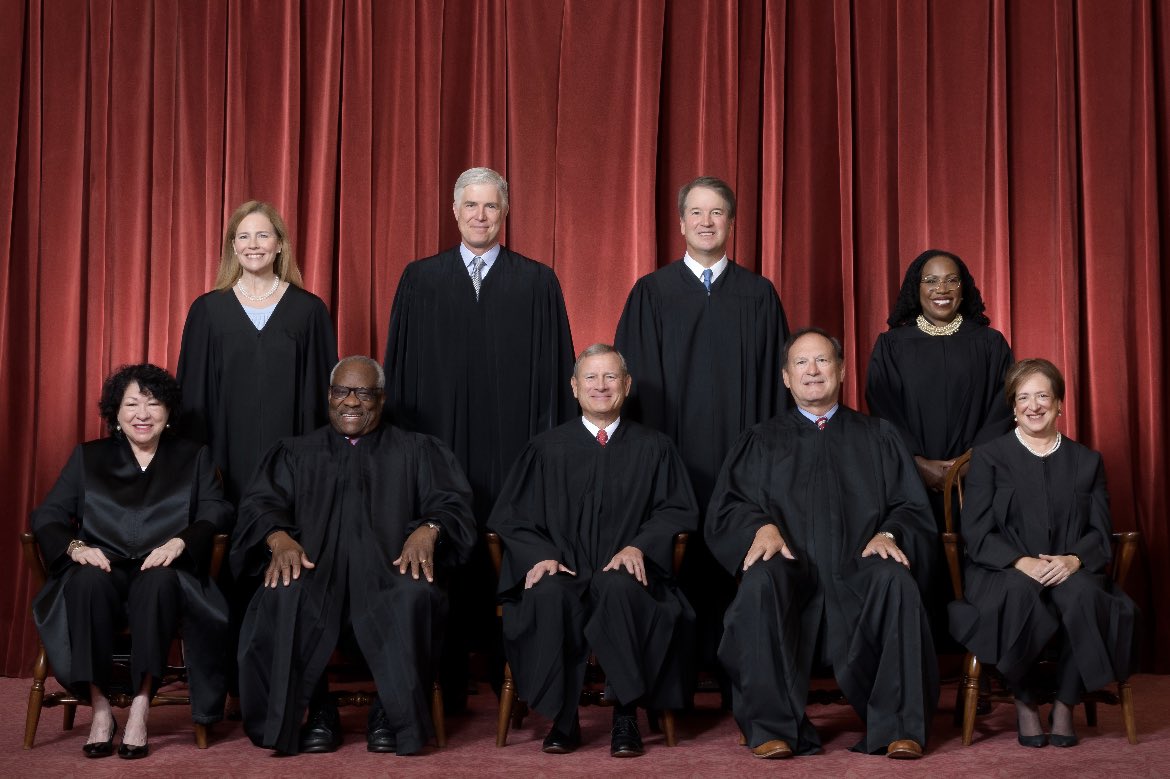Six Steps to Enforceable Ethics
With all the discussion this week about how enforceable ethics could happen at the Supreme Court, here’s Fix the Court’s take on what that might look like in practice, via six simple steps:
Step 1. The Chief Justice would appoint a judicial council comprising seven senior judges and some staff that could receive complaints about the justices.
 Why seven? That’s how many judges sit on judicial councils on the circuit level.
Why seven? That’s how many judges sit on judicial councils on the circuit level.
Why only senior judges? Because we don’t want the council to include judges who could later be appointed to SCOTUS and then use their council appointment to ingratiate themselves to their future colleagues. (Senior judges are never appointed to SCOTUS.)
Where would the Chief Justice find the seven judges? From a list of senior judges who’ve indicated they’re willing to sit on the council, akin to the existing list of judges the Chief Justice maintains who are willing to sit out of circuit should there be recusals or other exigent circumstances.
Why the additional staff? Just like in the lower courts, we expect the majority of the complaints filed against the justices to be frivolous. Currently, that number is 98 to 99 percent in the circuits and districts. So someone working with the on the council’s staff would need to filter out (and consolidate) the potentially meritorious complaints from the frivolous ones.
Step 2. Complaints may be filed by any person alleging that a justice has violated their oath, the law or their ethical obligations — or that the justice can’t do their job due to cognitive incapacity.
Why “any person”? This language mirrors the Judicial Conduct and Disability Act, which begins with the words “any person.”
Could a justice be involved in filing complaints? In the JCDA, a chief judge (in some cases acting on behalf of his or her colleagues) may identify a complaint and start the investigatory process, so we think the justices should also have that ability.
Step 3. If the council finds the complaint to be unsubstantiated or nongermane, it may dismiss the complaint.
How would the council know if the complaint is unsubstantiated or nongermane? Just like in the lower courts, the vast majority of complaints will be filed by vexatious litigants or other individuals upset about a decision the Court has made. That’s unavoidable, but council staff would filter these out.
Would there be an opportunity to appeal? No. Creating a second body of lower court judges to review the behavior of the justices and the actions of the newly created judicial council adds an unnecessary layer.
Step 4. If the complaint does have merit, the council can dismiss it if in the interim corrective action has been taken.
How would this come about? For example, if Nonprofit A files a complaint against Justice B for, say, omitting reimbursed travel to a Think-Tank C event from her disclosure (i.e., something that appears fairly innocuous), and soon after the complaint is filed the justice amends her disclosure, then the council can dismiss the complaint. This is envisioned for less involved complaints, and frankly, if one learns that a justice has omitted a single reimbursement, it might be easier to email the SCOTUS press office to request a fix (we’ve done this successfully on multiple occasions).
Step 5. If the complaint has merit, and if corrective action hasn’t been taken right away, then the council may open an investigation.
What would an investigation look like? The council could hold hearings, take sworn testimony and issue subpoenas. It could hire an outside firm to assist if needed. At any point, the council could communicate with the complainant, the subject justice and anyone else who may have knowledge of the matter. At any point, the subject justice could file a written response to the complaint.
What if new evidence comes up during the course of the investigation? That’s fair game and could be investigated by the judicial council.
What if during the investigation the council realizes the facts alleged in the complaint were inaccurate? The council can dismiss the complaint by majority vote.
Step 6. Once the investigation is over, the council will issue a comprehensive report of its findings and, by majority vote, present recommendations for appropriate action.
What might constitute “appropriate action”? Appropriate action may include a public or private admonition from the council, a justice’s recusal in an ongoing case or petition, a justice returning a gift or reimbursing someone for a free trip, ethics training for the justice or a request that the justice resign if the allegations are proven to be serious enough. (This list is not all-inclusive.)
Could the judicial council force a justice to take such an action? Not in our view, no. But it is our belief that if the council undertook an investigation and confirmed the unethical or illegal act alleged in the complaint and then recommended an action such as a recusal or ethics training, then the justice would comply. Additionally, Congress could force a justice who refused to take such remedial action to explain to the public why he or she made that decision.
Is impeachment on the table? If the council so chooses, it can send all of its investigatory materials to the House for further action under the House’s impeachment powers.